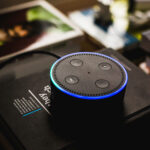
Health & Wellness
- Introduction: The evolving landscape of healthcare
- The Role of Technology in Transforming Healthcare
2.1 Telemedicine: Revolutionizing healthcare access
2.2 Wearable Devices: Empowering individuals for better health
2.3 Electronic Health Records: Streamlining patient care - Artificial Intelligence in Healthcare
3.1 AI-powered diagnostics and personalized medicine
3.2 Improving patient outcomes with predictive analytics
3.3 Robotics and automation in surgical procedures - The Rise of Digital Health Apps
4.1 Tracking and monitoring health data on-the-go
4.2 Virtual fitness trainers and personalized workout plans
4.3 Mental health support through digital platforms - The Impact of Technology on Wellness
5.1 Improving mental well-being through meditation apps
5.2 Promoting healthy lifestyles with nutrition and fitness apps
5.3 Smart homes for enhanced comfort and safety - Ethical Considerations in the Age of Technology
6.1 Privacy and security concerns in healthcare data
6.2 Ensuring equal access and addressing the digital divide
6.3 Maintaining human connection in a tech-driven world - Conclusion
Article:
Technological advancements have brought about a remarkable transformation in various industries, and healthcare is no exception. Welcome to “The Health of Tomorrow,” where we delve into the exciting intersection of technology and wellness. In this article, we will explore how technology is revolutionizing healthcare, empowering individuals, and reshaping the way we approach wellness.
The Role of Technology in Transforming Healthcare
Telemedicine: Revolutionizing healthcare access
One of the most significant advancements in healthcare is the rise of telemedicine. Through video consultations and remote monitoring, telemedicine enables patients to access healthcare services from the comfort of their homes. This has proven particularly beneficial for individuals in remote areas or those with limited mobility. Telemedicine offers convenience, cost-effectiveness, and improved access to specialized care.
Wearable Devices: Empowering individuals for better health
Wearable devices, such as fitness trackers and smartwatches, have become ubiquitous in today’s society. These devices monitor various health metrics, including heart rate, sleep patterns, and physical activity. By providing real-time feedback and personalized insights, wearables empower individuals to take charge of their health. They serve as constant companions, motivating users to make healthier choices and adopt an active lifestyle.
Electronic Health Records: Streamlining patient care
The transition from paper-based records to electronic health records (EHRs) has revolutionized the healthcare industry. EHRs allow healthcare providers to securely store and access patient information, improving efficiency, accuracy, and coordination of care. With EHRs, medical professionals can quickly retrieve medical histories, track medication usage, and collaborate seamlessly. This streamlined approach enhances patient safety and enables more informed decision-making.
Artificial Intelligence in Healthcare
AI-powered diagnostics and personalized medicine
Artificial Intelligence (AI) is revolutionizing healthcare diagnostics. Advanced AI algorithms can analyze vast amounts of medical data, aiding in the early detection and diagnosis of diseases. AI-powered systems can interpret medical images, detect anomalies, and assist radiologists in providing accurate diagnoses. Furthermore, AI enables personalized medicine by considering an individual’s unique genetic profile, lifestyle factors, and medical history to tailor treatments and interventions.
Improving patient outcomes with predictive analytics
Predictive analytics leverages AI algorithms and machine learning to identify patterns and predict future health outcomes. By analyzing large datasets, healthcare providers can identify individuals at high risk of developing certain conditions and intervene proactively. Predictive analytics helps prevent disease progression, reduce hospital readmissions, and improve overall patient outcomes.
Robotics and automation in surgical procedures
The integration of robotics and automation in surgical procedures has transformed the field of healthcare. Robotic surgical systems allow for precise and minimally invasive procedures, leading to faster recovery times, reduced complications, and improved patient outcomes. Surgeons can remotely control robotic arms to perform intricate surgeries with enhanced precision, providing a new level of surgical expertise.
The Rise of Digital Health Apps
Tracking and monitoring health data on-the-go
Digital health apps have gained immense popularity, enabling users to track and monitor their health on-the-go. From tracking daily steps to monitoring calorie intake, these apps provide valuable insights into one’s overall well-being. Users can set goals, receive personalized recommendations, and monitor progress, fostering a sense of accountability and motivation.
Virtual fitness trainers and personalized workout plans
With the rise of digital fitness apps, anyone can have access to a virtual fitness trainer and personalized workout plans. These apps offer a wide range of exercise routines, catering to different fitness levels and goals. Users can follow video demonstrations, receive real-time feedback, and track their progress. The convenience and flexibility of digital fitness apps make it easier for individuals to prioritize their fitness and lead healthier lives.
Mental health support through digital platforms
Digital platforms have also emerged as powerful tools for addressing mental health concerns. Mental health apps offer a range of services, including meditation guides, cognitive-behavioral therapy exercises, and mood tracking. These platforms provide a safe space for individuals to seek support, manage stress, and practice self-care. Digital mental health resources have the potential to increase accessibility to mental health services and reduce the stigma associated with seeking help.
The Impact of Technology on Wellness
Improving mental well-being through meditation apps
Meditation apps have gained popularity as individuals seek ways to manage stress and improve mental well-being. These apps offer guided meditation sessions, breathing exercises, and mindfulness practices. By incorporating technology into mindfulness practices, individuals can access these resources anytime, anywhere, and integrate them into their daily routines.
Promoting healthy lifestyles with nutrition and fitness apps
Nutrition and fitness apps have become valuable tools for promoting healthy lifestyles. These apps provide personalized nutrition plans, recipe suggestions, and meal tracking features. Users can set dietary goals, monitor their nutrient intake, and receive recommendations for healthier choices. By combining technology with nutrition education, these apps empower individuals to make informed dietary decisions and maintain a balanced lifestyle.
Smart homes for enhanced comfort and safety
The concept of smart homes has introduced new dimensions to wellness. Smart devices and connected systems allow individuals to control their living environments, enhancing comfort and safety. From automated lighting and temperature control to home security and emergency response systems, smart homes offer convenience and peace of mind. The integration of technology into living spaces promotes overall well-being and enables individuals to age in place comfortably.
Ethical Considerations in the Age of Technology
Privacy and security concerns in healthcare data
As technology becomes more ingrained in healthcare, ensuring the privacy and security of sensitive patient data is of utmost importance. The collection, storage, and sharing of healthcare information raise ethical concerns regarding data breaches and unauthorized access. Robust security measures and compliance with data protection regulations are crucial to maintain patient trust and safeguard confidential information.
Ensuring equal access and addressing the digital divide
While technology holds immense potential for improving healthcare, it is essential to address the digital divide to ensure equal access for all individuals. Disparities in technological literacy, internet connectivity, and device availability must be bridged to prevent further marginalization of underserved
communities. Efforts should be made to provide education, resources, and infrastructure to enable equitable access to technology-driven healthcare solutions.
Maintaining human connection in a tech-driven world
While technology brings numerous benefits to healthcare, it is crucial to balance its integration with maintaining human connection. Building trusting relationships between patients and healthcare providers remains essential. The human touch, empathy, and face-to-face interactions should not be overshadowed by technology. Striking a balance between technological advancements and the human element is vital to ensure comprehensive and compassionate healthcare.
Conclusion
“The Health of Tomorrow” embodies the exciting possibilities that arise from the intersection of technology and wellness. From telemedicine to AI diagnostics, digital health apps to smart homes, technology is transforming healthcare and empowering individuals to take charge of their well-being. However, ethical considerations and the preservation of human connection remain critical as we navigate the evolving landscape of healthcare in the digital age.
FAQs
1. Are digital health apps secure?
Digital health apps should prioritize user data security and comply with relevant privacy regulations. Users should choose reputable apps with strong security measures in place.
2. Can wearable devices replace regular medical check-ups?
Wearable devices can provide valuable insights into health metrics, but regular medical check-ups with healthcare professionals are still necessary for comprehensive assessments.
3. How can predictive analytics benefit healthcare?
Predictive analytics can identify individuals at risk of developing certain conditions, enabling proactive interventions, and improving patient outcomes.
4. What are the privacy concerns surrounding electronic health records?
Privacy concerns regarding electronic health records include the security of patient data, unauthorized access, and the potential for data breaches.
5. How can technology bridge the digital divide in healthcare?
Efforts should be made to provide technological education, improve internet connectivity, and make healthcare solutions more accessible to underserved communities, ensuring equitable access for all.
For more information and resources, you can visit:


